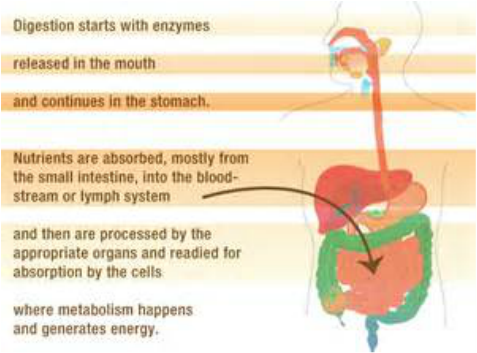In an analysis conducted by the National Association of Home Builders (NAHB), it was found that there was a larger percentage of new homes, especially single-family homes, that cater to the preferences of many home buyers today. Significantly, new construction is addressing the substantial demand for homes with special features — two bathrooms, an open kitchen-dining area, and an open floor plan.
For buyers who have already looked at existing homes for some time but still couldn’t find the home they want, a new construction home is a good option. There are three ways that you can purchase a new home: you can buy a new home that was already built; choose a semi-custom home built from a set of finishes and upgrades, or have a custom home designed entirely to your preference.
However, just as how the home buying process in existing homes goes, there are certain things buyers must do if they want a new construction home. Here are some tips to help you throughout the process:
1. Weigh out the pros and cons

The best way to figure out if a new construction home is the best route for you is to analyze first its pros and cons and whether it is going to suit your lifestyle. Do your research and ask yourself a few questions. Some of the pros and cons of new construction homes are:
Pros
There’s no need for long hours of lifting the hammer or using a paint brush to do any customization or repairs. If you’re that type who doesn’t want to do any immediate repair work once you moved in, then it’s a good choice for you.
New homes often come with modern design elements and lifestyle upgrades, such as open floor plans, open kitchen, etc.
They are also often built-in with the latest smart home technologies and are constructed using more energy-efficient materials that could help lower your energy bills.
You can have the builder customize the home based on your personal color palette before construction is even completed.
Cons
New homes can cost more than similar existing homes. Hard to break it to you, but those fabulous amenities and upgrades can also add up to the costs.
The home probably won’t be located in a tight-knit, well-established community of neighbors.
New homes, unless it’s purely customized, often have less architectural detail, charm, and character compared to older homes.
New homes are not for those who feel great pride and value in doing the upgrades and repairs themselves.
2. Find your own agent who has experience in new construction

Find a top local real estate agent who can best represent you and your interests during your home search and the home building process. Be sure that it’s someone who has experience in new construction and regularly deals with builders, but isn’t affiliated with the builder. Find a trusted agent even before visiting a builder’s home construction site. Many model homes are represented by a real estate agent who has a relationship with the builder, and many builders won’t allow you to hire your own agent once you already visited their sales office without representation. Seeking the help of a knowledgeable professional who regularly deals with builders and knows the local communities by heart will save you time and money. Besides, it will cost you nothing as a buyer to be represented by an agent since it is typically the seller who pays for the commission. Many builders are also happy to work with agents, so it can be a win-win situation.
3. Do your research on the builder and its reputation

Conduct research on the builders of each development that you’re interested in. Search for online reviews, testimonials, and any news and updates you can find. Then check for the validity and trends in those reviews, since many builders will surely have a history of both happy and unhappy clients. If possible, also talk to local homeowners or current residents. Connect with them in online groups or communities through social media to better educate yourself before making a decision. Also research on the location and the community where the new construction is being built where you can learn about your potential neighbors as well. Ask your real estate agent if they’ve worked with the builder before and gain insights about their reputation.
Bonus Tip: When talking to the locals or current residents, don’t forget to ask about other costs associated with owning a home in that development, such as property taxes and the average utility costs.
4. What you see isn’t always what you get

It’s normal to be fascinated by that picture-perfect model home, but don’t let it blind you. Model homes are, of course, decorated to look desirable and striking. They have been furnished and staged so that rooms will appear bigger. Model homes were often constructed using a mix of standard materials and fixtures and include many upgrades which don’t necessarily represent what you can get, so it’s crucial to note what exactly you will be getting. Enlist the help of your agent to get a list of the standard features and common upgrades, together with their associated costs.
5. Find other ways to negotiate and get discounts

Most builders are reluctant to lower their prices because it may set a precedent for future buyers in the development who may expect similar discounts. The best way to negotiate with a builder is through upgrades. Consider asking for the builder to negotiate “on the back end,” such as paying for closing costs and performing upgrades at no additional charge. This is the less obvious way for builders to sweeten the deal while still maintaining the value of their neighborhood. With the help of your agent, research the builder’s negotiating style so that you can plan for an effective way to make a creative offer.
6. Do your research to find a good lender and the best loan for you

Consider other sources where you can find a lender who will offer you the best deal. Don’t automatically use the builder’s own lender without shopping around for better options. Builders often have their preferred lender so that they can be fully informed of your personal progress as a borrower. However, they may not work with your best interests in mind. Your agent can also help you by referring his or her trusted list of private lenders where you can choose.
For some instances where the builder’s preferred lender is the only option, find out if there are incentives, special offers, or competitive rates available to you if you agree to use the builder’s own lender. In some situations, it can be a cost-efficient option since they are often willing to offer competitive rates and terms, especially if the builder owns the lending company.
7. Get a home inspection

You might think, “Nah, it’s a new home, so why would I need to have a home inspection?” Well, that’s a huge mistake. New homes can also have problems or defects since construction workers can make mistakes as well. There may be problems with the HVAC or plumbing installation that only a licensed home inspector can detect. Getting an independent inspection is always a good idea since any problems can be identified before a builder’s warranty expires. It will also help you learn more about the home. A home inspection will guarantee that everything is safe and up to code.
8. Secure everything in writing

Even if you are working with a respectable builder, make sure that everything you have negotiated and agreed upon will be included in writing. They may honor your requests, but verbal conversations are not binding so they may forget about the promises they made to you. Make sure that everything important will be put in binding documents that must be signed by all parties. It’s especially crucial if you are buying a home that is not yet complete. Your experienced real estate agent can help you ensure everything is in writing and that all documents are properly signed.
9. Get a guarantee

If you buy a home that is not yet completed, one thing you need to guarantee by the builder is a completion date, which should be specified in your purchase agreement documents. However, review these documents thoroughly because many builders may add provisions that make the completion date dependent on several variables, such as on city permit approvals or availability of building materials from several suppliers. A guarantee is especially important if you have to make living arrangements until the home is built.
10. Find out what things are included in warranties

Last but definitely not the least: ask about warranties. Find out what is and isn’t covered and for how long, since not all warranties are created equal. Most builders use third-party warranties that cover materials and workmanship. Builders often use construction materials from different manufacturers or suppliers, like for windows or tiles, so those products may have separate warranties. There’s a great chance the builder might refer all issues to the manufacturers instead of handling the issues directly. Get the builder to specify each product’s warranty information so you can prepare your offer documents to address any concerns before closing. Warranties will also help you understand the process you need to follow once something needs to be fixed.
Buying a new construction home, with their absolutely perfect “new house smell,” can be considered a luxury of its own. Especially if you’re the type of buyer who’s really dreaming of owning a piece of the American Dream in a particular development. Heed these smart tips and when in doubt, don’t be afraid to ask questions! Most builders and developers will use a handful of lingo and phrases you may have never even heard of. Ask questions if there’s something you’re unclear with, take down notes, and get everything in writing. Hopefully, you’ll have a top local realtor to educate and assist you in this important milestone.
Because we care...
#teambousehouse
#remax





